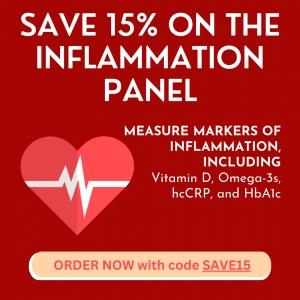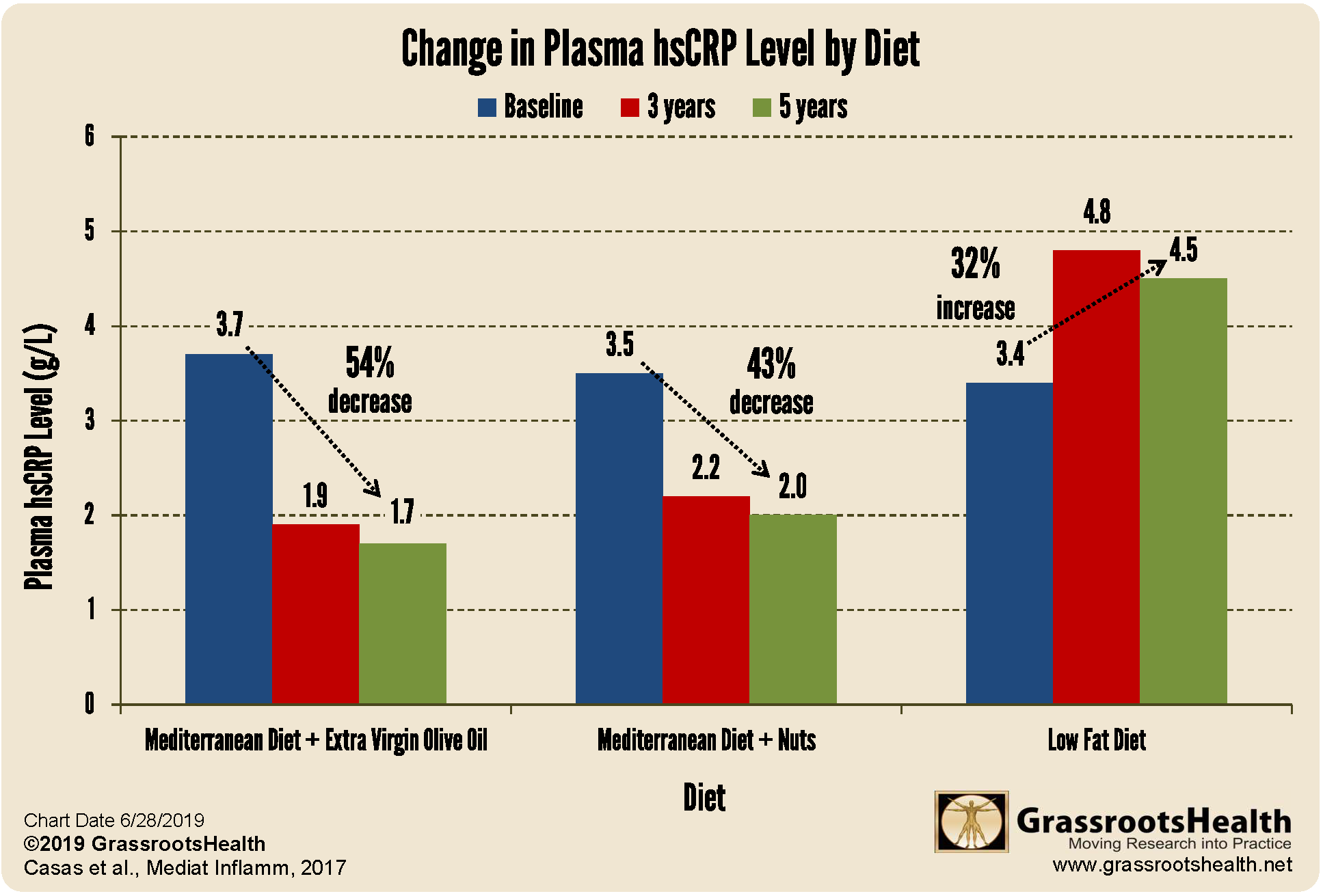Published on January 15, 2024
Dr. Richard Cheng dives into how Orthomolecular Medicine can help reverse disease, and other studies show how different diets can affect health outcomes
Key Points
- Certain foods are known to contribute to inflammation, especially highly processed foods, foods that are high in refined carbohydrates (such as sugar, white bread, white rice, etc.), and trans-fatty acids, while other foods are known to have an anti-inflammatory effect
- In the featured video, Dr. Richard Cheng discusses how a low carb diet that is high in fat can be protective of several diseases, most especially atherosclerotic cardiovascular disease (ASCVD), also characterized an inflammatory disease with high levels of oxidative stress. He reviews several large studies in detail demonstrating how cholesterol does not increase the risks for cardiovascular diseases, nor for all-cause of mortality and includes specific supplements that he recommends for all of his patients.
- Other studies have demonstrated the long-term, anti-inflammatory effect of the Mediterranean diet, specifically among participants at high risk of cardiovascular disease; the opposite was found for those on the low fat diet
 Chronic, low-level inflammation has been linked to a number of diseases, ranging from cardiovascular disease to diabetes and cancer. The higher the inflammation levels, the higher the risk of developing these diseases.
Chronic, low-level inflammation has been linked to a number of diseases, ranging from cardiovascular disease to diabetes and cancer. The higher the inflammation levels, the higher the risk of developing these diseases.
Inflammation can go unnoticed and be very damaging long term. Sometimes an individual will experience symptoms such as pain or fatigue due to inflammation, but often times there will be no symptoms until disease occurs.
Your Diet Can Affect Inflammation Levels and Disease Progression
Certain foods are known to contribute to inflammation, especially highly processed foods, foods that are high in refined carbohydrates (such as sugar, white bread, white rice, etc.), and trans-fatty acids. Other foods are known to have an anti-inflammatory effect, especially whole foods like fruits and vegetables, foods that are high in mono-unsaturated fatty acids (such as nuts, avocado, olive oil, etc.), have a higher omega-3 to omega-6 ratio (such as fatty fish, flax seeds, etc.), and are high in polyphenols (such as dark berries, cherries, grapes, dark chocolate, etc.).
Can a Low Carb Diet High in Saturated Fats Help Reverse Disease?
Richard Cheng, MD, PhD, is a board-certified anti-aging and integrative cancer therapy physician with offices in the United States and Shanghai. In practice, he integrates conventional medicine with alternative medicine, with a particular focus on nutrition. Dr. Cheng was inducted into the Hall of Fame of the International Society for Orthomolecular Medicine in May 2022 for his effort to promote nutritional immunity against Covid-19 in China and worldwide. He also co-founded the Low Carb Medicine Alliance of China to promote health through lifestyle, diet, and nutrition.
“Orthomolecular medicine simply means nutrition and optimal nutrition is the cornerstone of health, is the major pillar of our health. If we do not understand nutrition, we do not understand health, and we do not understand disease.”
In the video below, Dr. Cheng discusses how a low carb diet that is high in fat can be protective of several diseases, most especially atherosclerotic cardiovascular disease (ASCVD). ASCVD can be characterized as an inflammatory disease with high levels of oxidative stress (the biochemical nature of inflammation). He reviews several large studies in detail demonstrating how cholesterol does not increase the risks for cardiovascular diseases, nor for all-cause of mortality. He also includes specific supplements that he recommends for all of his patients. Watch the video below or read the transcript here.
Reversal of Coronary Heart Disease with Low Carb Orthomolecular Medicine
Mediterranean Diet Shown to Reduce Inflammation
A study by Casas et al. on the Mediterranean diet (MedDiet) also demonstrates a link between a specific diet and inflammation. This particular study was conducted among 165 participants who had a high risk of cardiovascular disease. The participants were randomly split into three groups and had to follow a specific diet for 5 years: one group was put on a MedDiet supplemented with olive oil, another on a MedDiet with nuts (walnuts, almonds, and hazelnuts), and one on a low fat diet.
The MedDiet diet generally consists of:
- high intake of fruits, vegetables, whole grains, nuts and legumes, with olive oil as the main source of fat
- moderate intake of fish, poultry and alcohol (particularly red wine, with meals)
- low intake of red and processed meats
What were the results of this study?
As you can see in the chart below, both groups on the MedDiet experienced decreased inflammation (as measured by hsCRP), while the low fat diet group did not.
In conclusion, this study demonstrated long-term, anti-inflammatory effect of the MedDiet, specifically among participants at high risk of cardiovascular disease. The opposite was found for those on the low fat diet.
Save 15% on the Inflammation Panel Test Kit with Code SAVE15
 Do you know your levels of inflammation? Get a glimpse of the amount of inflammation in your body with the Inflammation Panel, offered by GrassrootsHealth. Included is a measurement for C-reactive protein (CRP), a byproduct of chronic inflammation. Research suggests that the level of CRP, measured using a test called hs-CRP, can predict heart disease even ten years before diagnosis. Measuring hsCRP and HbA1c (a measure of blood sugar health) along with vitamin D and omega-3s can provide a clue about how much inflammation exists in the body and whether additional changes should be made to decrease inflammation, with supplementation, dietary changes, or both.
Do you know your levels of inflammation? Get a glimpse of the amount of inflammation in your body with the Inflammation Panel, offered by GrassrootsHealth. Included is a measurement for C-reactive protein (CRP), a byproduct of chronic inflammation. Research suggests that the level of CRP, measured using a test called hs-CRP, can predict heart disease even ten years before diagnosis. Measuring hsCRP and HbA1c (a measure of blood sugar health) along with vitamin D and omega-3s can provide a clue about how much inflammation exists in the body and whether additional changes should be made to decrease inflammation, with supplementation, dietary changes, or both.
Create Your Custom Home Test Kit
 Measure your vitamin D levels at home as part of the D*action project! To know if you are getting enough, make sure you test today!
Measure your vitamin D levels at home as part of the D*action project! To know if you are getting enough, make sure you test today!
You can also measure your:
- Vitamin D
- Magnesium PLUS Essential and Toxic Elements
- Omega-3 Fatty Acids
- hsCRP
- HbA1c
- TSH
- Type 1 Diabetes Autoantibodies
Did you know that each of the above can be measured at home using a simple blood spot test? As part of our ongoing research project, you can order your home blood spot test kit to get your levels, followed by education and steps to take to help you reach your optimal target levels. Start by enrolling and ordering your kit to measure each of the above important markers, and make sure you are getting enough of each to support better mood and wellbeing!
Create your custom home test kit today. Take steps to improve the status of each of these measurements to benefit your overall health. With measurement you can then determine how much is needed and steps to achieve your goals. You can also track your own intakes, symptoms and results to see what works best for YOU.







